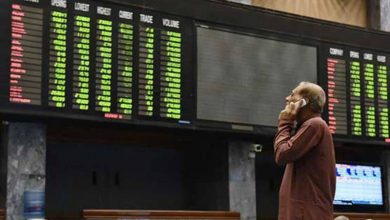Govt fails to secure $9b loan rollovers

An official report on disbursement of foreign loans confirmed on Tuesday that the government was unable to secure $9 billion in debt rollovers last month, receiving only $426 million from international lenders in July.
The Ministry of Economic Affairs published its monthly disbursement report, revealing that no loans were secured from foreign commercial banks or bilateral creditorssources the government is urgently trying to tap for the necessary foreign funding to stay afloat.
The rollover of Chinese, Saudi Arabian, and United Arab Emirates cash deposits, along with raising new loans from foreign commercial banks, are prerequisites for the International Monetary Fund’s (IMF) approval of a $7 billion bailout package. The Ministry of Economic Affairs has listed $5 billion in Saudi Arabian debt and $4 billion in Chinese debt as part of the federal government’s rollover plan. However, the $3 billion UAE deposit is accounted for on the central bank’s balance sheet.
The report noted that no disbursements were made against these loans last month.
The IMF had initially scheduled the approval of the $7 billion programme for August 30 but deferred it due to the government’s inability to secure the necessary rollovers. This marks the first official confirmation of the failure to materialise these transactions.
The IMF’s new Extended Fund Facility (EFF) assumes that Pakistan will remain current on its external and domestic debt repayments. The $12 billion cash deposit rollover and $4 billion commercial loan are integral to the IMF’s debt sustainability plans, yet both the IMF and the government have avoided addressing the pressing need for debt restructuring.
Sources indicated that if Pakistan and Saudi Arabia finalise the sale of 15% shares in the Reko-Diq mining project by early September, Saudi Arabia might expedite Pakistan’s $5 billion rollover request and approve an additional $1.2 billion oil financing facility.
For the current fiscal year, the government has not included the $1.2 billion oil financing facility in its annual $19.2 billion total borrowing plan. However, Finance Minister Muhammad Aurangzeb has already requested the facility from Saudi Finance Minister Muhammad Al-Jadaan.
Last week, the finance minister stated that the IMF might approve the new package in September, though he did not specify a date.
Any further delay in the $7 billion IMF deal approval could complicate matters for the federal government. Despite imposing a record Rs1.8 trillion in new taxes, the government now faces the additional challenge of an anticipated shortfall in Federal Board of Revenue (FBR) tax collection.
If the IMF approval is delayed until October, the lender might demand a mini-budget before approving the loan package to cover any tax collection shortfalls. The government has set a Rs898 billion tax collection target for the FBR this month. As of Tuesday, the FBR has collected only Rs575 billion, leaving Rs323 billion to be collected in just four daysan average of Rs81 billion per day.
Internal FBR assessments suggest a possible shortfall of around Rs80 billion, which the FBR is now trying to cover by taking advances from commercial banks, according to sources. Prime Minister Shehbaz Sharif has appointed his trusted officer, Rashid Langrial, as the new FBR chairman. This will be the first major test for Langrial to meet the target and fulfill the expectations of the PM’s Office.
The Ministry of Economic Affairs report also highlighted that the World Bank provided a $132.4 million loan last month, with $11 million allocated to the National Transmission and Dispatch Company (NTDC), $80 million for two flood-related projects in Sindh, and $26 million for a Punjab agriculture project.
The Asian Development Bank (ADB) disbursed $52 million for multiple schemes, while China provided $97 million for the Pakistan Multi-Mission Satellite project. Additionally, the country received $128 million from the Naya Pakistan Certificates, which come at a high cost.
However, there were no disbursements against the annual projected budget estimates of $3.8 billion from foreign commercial banks. Pakistan also plans to borrow $1 billion through sovereign bonds this fiscal year, including $300 million through Chinese Panda bonds and $700 million through Green bonds.





